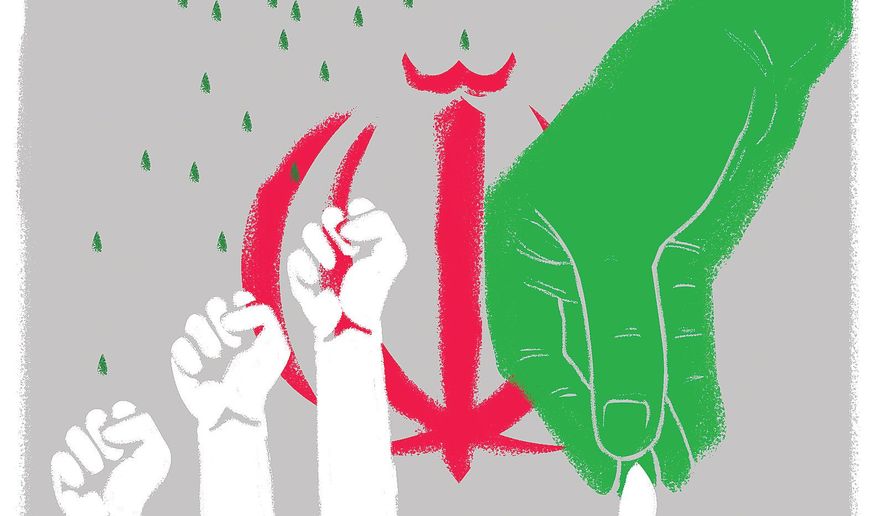OPINION:
This is the second round of violent protests by Iranians against their government for suppressing their rights and attempts to enjoy those rights. Barack Obama didn’t have much sympathy for the protests against the government suppression of voters in a national election in 2009.
Mr. Obama said only he was “deeply troubled,” but his concern looked fairly shallow to everyone else. He said he didn’t want to “be seen as meddling.” But he did “call on” the Iranian authorities to be nice.
There’s a new president in town, and Tuesday he offered the “full support” of the U.S. government to the protesters in the streets of Tehran and other Iranian cities. President Trump declared it was “time for a change” in Iran and administration officials hinted that additional sanctions, which are making the mullahs squirm as if they’re suffering fire ants in their underpants, might soon be imposed.
“We want to help amplify the voices of the Iranian people,” Nikki Haley, the U.S. ambassador to the United Nations declared, and said it was “complete nonsense” the Iranian government’s claim that the dissent was fomented by “other countries.”
The U.S. State Department pressed the Tehran government to unblock social-media sites used by the protesters to call demonstrators to the streets, and even offered tech-savvy Iranians advice on how to foil the government’s blocking of the sites.
This is in sharp contrast to how Mr. Obama’s government retreated from offering even moral support for similar protests a decade ago. He waited 10 days before he said anything, perhaps trying to plumb how deeply he was “troubled” by the government’s violence against its people, and then offered only flaccid gestures.
Some figures in the Obama administration look back now on their reticence with regret bordering on shame. “I think we were too restrained in our support of the protests in June 2009, and in our condemnation of the government crackdown that followed,” Hillary Clinton, the former secretary of State, told an audience at the Brookings Institution last year.
Gen. Mike Mullen, the former chairman of the U.S. Joint Chiefs of Staff during the Obama years, recalled in careful bureaucrat-speak to a television interviewer on New Year’s Eve, that “the 2009 time frame is very instructive. I think we chose not to be as supportive as we could have been then.
“I hope we can be right now so that Iran can continue to evolve. They have an incredibly young population. They look to a future they cannot see. They’ve been promised change and a healthier economy by the current government, and I think the protests represent the inability to deliver that so far.”
Mistakes were made, in the famous formulation dear to the hearts of those caught in misfeasance, but better to recognize their misfeasance later than never. Calling out sinners can sometimes prevent greater sin later.
Barack Obama preferred “leading from behind,” with meaningless red lines and an inability to encourage the willing, but events nearly always prove that leading from behind is no leadership at all. President Trump’s calling weakness by its right name is the welcome strategy of the strong. “The concessions of the weak,” as Edmund Burke reminds the eager to learn, “are the concessions of fear.”




Please read our comment policy before commenting.